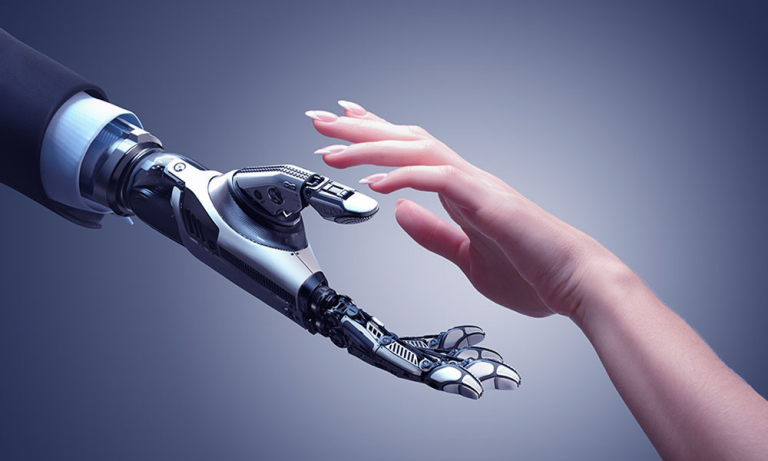For students, learning is often a struggle – the tedium of homework, information overload from demanding course loads, and nerves from high-stakes testing. Yet amid these academic pressures, exciting new technologies promise welcome relief.
Artificial intelligence (AI) is transforming various industries, and education is no exception. From personalized learning to mental health support, AI has the potential to greatly enhance the student experience. This article explores five key ways AI can help students thrive.
How AI can Help Students in 2024?
Personalized Learning
AI allows for more personalized and adaptive learning experiences tailored to each student’s needs and abilities.
Adaptive Learning Systems
AI powers advanced adaptive learning systems that customize educational content and activities for each learner. These systems track student progress and adjust the learning in real-time to provide the right level of challenge. This ensures students remain engaged and learn at their own pace.
Tailored Study Plans
Intelligent algorithms analyze individual strengths and weaknesses and design tailored study plans. This helps students focus on topics they struggle with and advance quickly through materials they have mastered. The optimized learning path keeps students motivated.
Real-Time Feedback and Recommendations
As students learn, AI provides them with instant feedback to reinforce concepts. It also offers personalized recommendations on additional topics to study, learning resources to leverage, and ways to improve academic weaknesses. This real-time guidance allows students to make rapid learning gains.
Enhanced Learning Experiences
AI is powering more immersive, interactive and stimulating learning experiences which were not possible before.
Virtual Classrooms and Simulations
Interactive simulations and virtual environments transport students into realistic situations to apply their developing skills. Learning through simulated practice boosts confidence and readiness for the real-world.
Interactive Learning Platforms
Fun, game-like learning platforms feature smart AI capabilities which make studying more engaging for students. These platforms provide customized exercises and activities based on individual progress.
Immersive Experiences Through VR and AR Technology
By integrating AI with virtual reality (VR) and augmented reality (AR) technology, schools create truly immersive learning adventures that captivate student imagination and interest. Students can discover new worlds and explore subjects in deeper ways.
Academic Support
AI tutors, chatbots and other tools provide students with timely academic support whenever they need it.
AI Tutors and Chatbots
Around-the-clock AI tutors and chatbots give students access to one-on-one academic support. If stuck on a difficult homework problem at night, an AI tutor can provide hints and explanations. Advanced chat pdf tools allow students to go through big documents with hundreds of pages to get easy explanations, helping them learn quickly and more effectively.
Automated Grading Systems
Automated grading tools instantly score written assignments and tests based on sophisticated algorithms. This allows students to receive quicker feedback on work and grades.
Instant Access to Resources and Study Materials
Intelligent academic search engines understand student information needs and interests. They recommend reliable, up-to-date online learning resources, study guides and academic papers tailored to the topics students are exploring.
Skills Development
Sophisticated AI programs assess student skills and design data-driven exercises to help students build real-world skills.
AI-Powered Skill Assessments
AI analyzes student writing samples, projects, test performance and other work products to provide in-depth evaluations of strengths and development areas. These skill assessments are more detailed and reliable than human-generated reviews.
Personalized Skill-Building Exercises
Based on skill evaluations, AI generates endless exercises, activities and challenges tuned to each student’s current competency levels. This approach accelerates real-world skill improvement.
Career Guidance Based on Skill Evaluation
By benchmarking student talents against in-demand career skills, AI career guidance tools provide reliable recommendations on potential career paths well-matched to student strengths and interests. This allows students to make informed decisions about college majors and career planning.
Mental Health and Well-Being
Balancing schoolwork with health and wellness is crucial for student success. AI mental health chatbots and recommendation tools can provide much-needed support.
AI-Driven Mental Health Support
Confidential AI chatbots allow students to anonymously discuss mental health concerns and get compassionate, judgment-free support 24/7. Some tools may even contact a human counselor if risk factors are detected.
Stress and Anxiety Management Tools
AI programs teach research-backed stress management techniques tailored to each student’s needs through interactive exercises. Soothing AI virtual companions also help students unwind.
Personalized Self-Care Suggestions
By tracking individual lifestyle and daily routines, AI assistants provide timely, personalized tips to improve sleep, nutrition, fitness and general wellness. The small changes suggested by AI accumulate over-time for enhanced mental and physical health.
Conclusion
When applied properly and thoughtfully, AI has vast potential for transforming and improving student experiences across personalized learning, academic support, skill-building and mental health.
Still an emerging field, AI solutions must be carefully designed to avoid issues around data privacy, algorithmic bias and excessive screen times for young learners. Overall though, AI paves an exciting path for the future of education.

